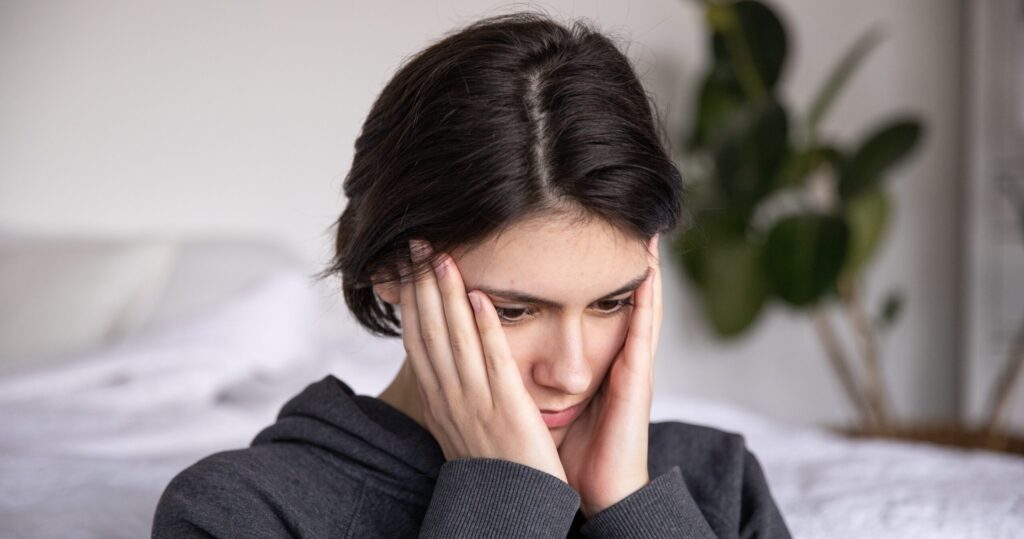Antidepressants addiction is a common concern among those who are prescribed medications to treat major depressive disorder. Antidepressants are medications that alter the brain’s chemical balance to address mood disorders like depression. People who misuse antidepressants may be contending with substance addiction issues separate from their antidepressant use.
This guide to antidepressants and addiction outlines issues that include:
- Are antidepressants addictive?
- How does addiction to antidepressants develop?
- Addicted to antidepressants: how to engage with treatment in Southern California.
Can You Get Addicted to Antidepressants?
Addiction to antidepressants differs from addiction to substances like alcohol or heroin. It lacks the cravings, euphoria, and negative consequences often associated with traditional drug addiction. That said, physical dependence can develop in individuals using antidepressants regularly, leading to withdrawal symptoms when use is abruptly reduced or discontinued.
Antidepressant dependence can even occur in individuals who were initially misdiagnosed with depression and prescribed these medications unnecessarily.
However, antidepressants do not produce a significant euphoric rush or cravings that typically drive addiction to other substances.
Some individuals attempt to misuse antidepressants by snorting them, although this does not typically lead to addiction and may only occur when the preferred substance is unavailable, offering little more than a placebo-like effect.
Despite the risks associated with antidepressants, these medications significantly improve the lives of many individuals. Anyone prescribed antidepressants should never discontinue them without consulting a doctor.
Best Antidepressant for Drug Addicts
The choice of the best antidepressant for individuals with a history of substance abuse, including drug addiction, can vary depending on the specific needs and circumstances of the person. There is no one-size-fits-all answer, as everyone’s situation is unique. That said, some factors and considerations to keep in mind when selecting an antidepressant for someone with a history of drug addiction include:
- Type of substance abuse: The choice of antidepressant may depend on the type of substance that was abused. Some antidepressants may interact differently with certain drugs or alcohol.
- Co-occurring disorders: Individuals with a history of drug addiction often have co-occurring mental health conditions, such as depression or anxiety. It is imperative to choose an antidepressant that can effectively treat both the addiction and the co-occurring disorder.
- Safety profile: Some antidepressants have a better safety profile when it comes to potential interactions with drugs or alcohol. Selecting an antidepressant with a lower risk of adverse effects when combined with substances of abuse is crucial.
- Potential for abuse: Consider the potential for abuse or misuse of the antidepressant itself. Some antidepressants have a lower potential for abuse than others.
- Medical history: The individual’s medical history, including any previous adverse reactions to antidepressants or other medications, should be considered.
- Individual response: Response to antidepressants varies among individuals. It may be necessary to try different antidepressants to find the one that works best for a particular person.
- Monitoring and support: Close monitoring by a healthcare professional and adequate support in the form of therapy or counseling are essential components of treatment for individuals with a history of drug addiction.
Commonly prescribed antidepressants for individuals with a history of substance abuse include SSRIs (selective serotonin reuptake inhibitors) like sertraline (Zoloft) and escitalopram (Lexapro) and SNRIs (serotonin-norepinephrine reuptake inhibitors) like venlafaxine (Effexor). However, the choice should be made in consultation with a healthcare provider who can assess the individual’s specific needs and tailor the treatment accordingly.

Antidepressant Addiction Symptoms
Antidepressant addiction is not as common as addiction to other substances like opioids or alcohol, but it can still occur. The symptoms of antidepressant addiction or dependence can vary from person to person, but some common signs and symptoms to watch for include:
- Compulsive use: Individuals may find themselves taking antidepressants more frequently or in higher doses than prescribed, even after their mood has stabilized.
- Craving: Some people may develop a psychological craving for the antidepressant and feel like they need it to function normally.
- Loss of control: Those addicted to antidepressants may have difficulty controlling their use, even when they want to cut down or stop taking the medication.
- Neglecting responsibilities: As with any addiction, people may neglect their responsibilities at home, work, or school because they are preoccupied with obtaining or using antidepressants.
- Social isolation: A person addicted to antidepressants may withdraw from social activities, friends, and family.
- Doctor shopping: Some people may seek prescriptions for antidepressants from multiple doctors or engage in other deceptive practices to obtain more of the medication. This is known as doctor shopping.
- Continued use despite harm: Even if they experience negative consequences, individuals addicted to antidepressants may continue to use them.
- Withdrawal symptoms: Experiencing withdrawal symptoms when not taking the antidepressant is a clear sign of dependence. Antidepressants addiction withdrawal symptoms may include anxiety, irritability, flu-like symptoms, and mood disturbances.
- Tolerance: Over time, individuals may find that they need higher doses of the antidepressant to achieve the desired effects.
- Mood swings: Frequent and severe mood swings can occur, especially when the person is not using the antidepressant.
Not everyone who takes antidepressants will develop an addiction or dependence. In fact, most people take these medications as prescribed without any issues. However, if you or someone you know is exhibiting these signs and symptoms of antidepressant addiction, consult a healthcare professional or addiction specialist. They can provide guidance on how to safely manage the situation and explore alternative treatments if necessary.
Antidepressant Addiction Treatment
Treatment for antidepressant addiction typically involves a combination of medical, psychological, and behavioral approaches. The specific treatment plan may vary depending on the individual’s unique circumstances and the severity of the addiction. Here are some common components of antidepressant addiction treatment:
A healthcare provider will conduct a thorough medical assessment to determine the extent of the addiction, assess any physical health issues, and identify any co-occurring mental health disorders.
In some cases, individuals may require medically supervised detoxification if they are physically dependent on the antidepressant. This process involves gradually tapering off the medication to minimize withdrawal symptoms.
Psychotherapies like CBT (cognitive behavioral therapy) or DBT (dialectical behavior therapy), can help individuals address the underlying reasons for their addiction and create healthy coping techniques.
Group sessions provide a supportive therapeutic environment in which individuals can learn from others with lived experience of addiction, benefiting from powerful peer support.
In cases where individuals have a co-occurring mental health disorder, medication management may be necessary. This involves carefully monitoring and adjusting medications to address both the addiction and the underlying mental health condition.
Behavioral therapies can help individuals identify triggers for their addiction and develop strategies to avoid or cope with those triggers.
Joining support groups, such as 12-step programs or other recovery groups, can provide ongoing encouragement and accountability during the recovery process. Involving family members in the treatment process can help improve the individual’s support system and address family dynamics that may contribute to the addiction.
Learning relapse prevention strategies is a crucial part of treatment. Individuals will work on identifying potential relapse triggers and developing skills to prevent relapse.
Some people find benefit in complementary therapies like mindfulness meditation, yoga, and exercise to support their recovery and overall well-being. Holistic therapies are always most effective when blended with evidence-based treatments.
Seek treatment from healthcare professionals or addiction specialists who are experienced in treating antidepressant addiction and co-occurring disorders. Each treatment plan should be tailored to individual needs and may involve a combination of these approaches. Recovery from antidepressant addiction is possible with the right support and resources.
FAQs
Are tricyclic antidepressants addictive?
TCAs (tricyclic antidepressants) are not considered addictive in the same way that drugs of abuse like opioids or stimulants are. Having said that, abruptly discontinuing TCAs can lead to withdrawal symptoms and should be performed under medical supervision.
Are all antidepressants addictive?
Not all antidepressants are addictive. Most modern antidepressants, such SSRIs and SNRIs, are not considered addictive in the traditional sense. They do not produce euphoria or cravings like addictive substances.
What is the best treatment for depression for drug addicts?
The best treatment for depression in individuals with a history of drug addiction can vary depending on the individual’s specific needs and circumstances. It often involves a combination of therapy, support groups, and sometimes medication. Individualized treatment plans should be developed with the guidance of healthcare professionals.
Is depression and addiction connected?
There is a strong connection between depression and addiction. Many people with substance use disorders also struggle with co-occurring mental health conditions like depression. These conditions often interact and reinforce each other, making treatment more complex but essential for recovery. Integrated treatment approaches address both depression and addiction simultaneously to improve outcomes.

Get Effective Treatment for Antidepressant Addiction at Gratitude Lodge
If you require assistance safely discontinuing the use of antidepressants, we can help you achieve this at Gratitude Lodge Newport Beach or Long Beach, CA.
Begin your recovery by engaging with our prescription drug detox program. Our team of committed medical professionals will help you discontinue the use of antidepressants while mitigating cravings and withdrawal symptoms. After gradually reducing your dosage, you can move into ongoing treatment.
Gratitude Lodge’s 30-day inpatient program provides a structured and supportive pathway to ongoing recovery from antidepressants addiction. Your treatment program may include any of the following interventions:
- Medication-assisted treatment
- Psychotherapies like CBT or DBT
- Group therapy
- Individual therapy
- Family therapy
- Holistic therapy
- Aftercare
Stop using antidepressants safely and comfortably. Call 800-994-2184.




























